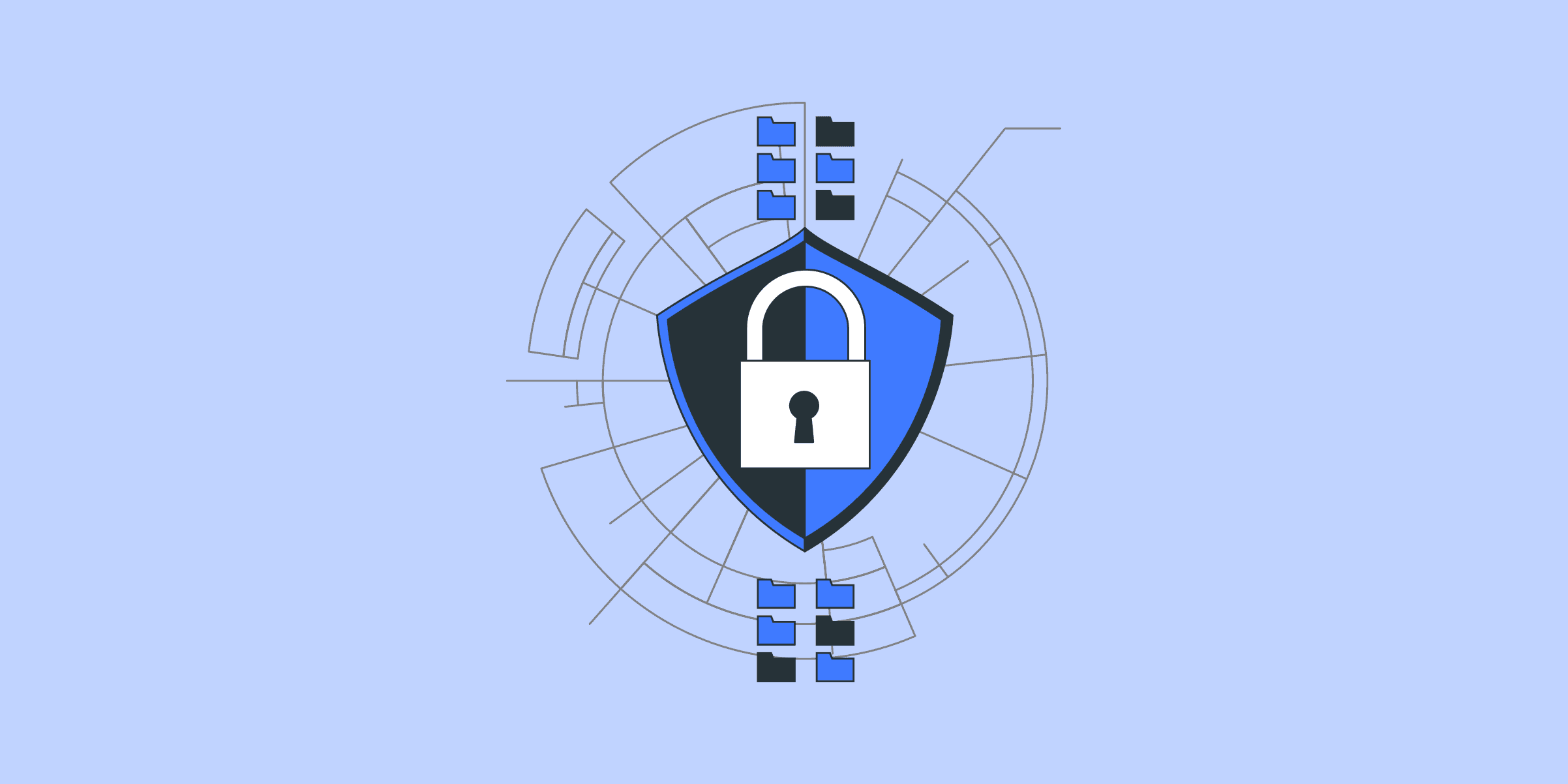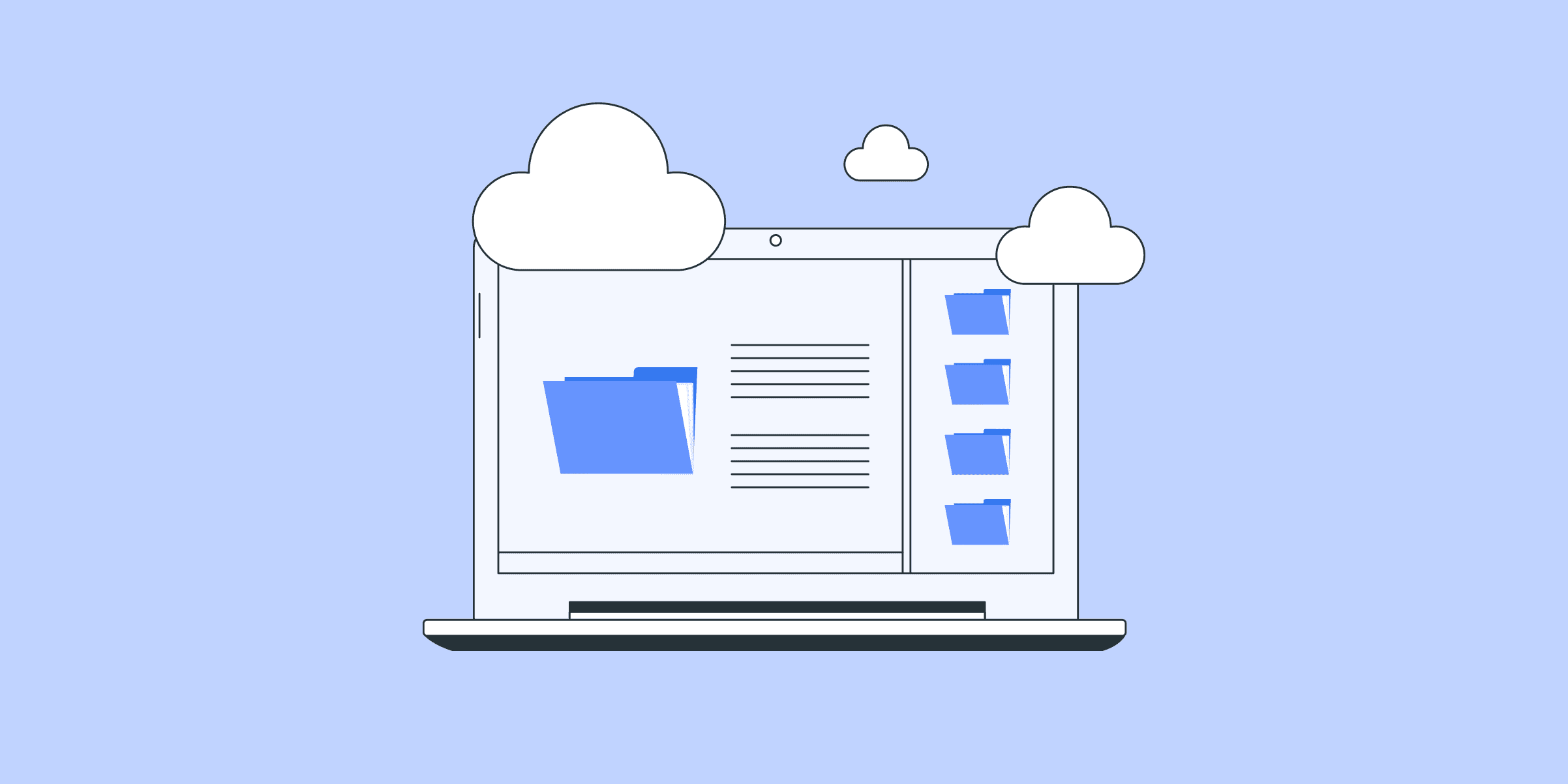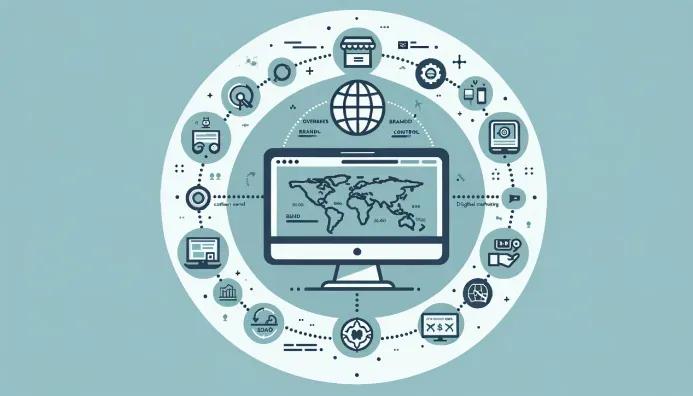海外代理

Static Residential IP Proxy vs. Dynamic Residential IP Proxy: Differences and Applications Explained
In the world of networking, IP proxies are common technologies used to conceal users' real IP addresses, ensuring anonymity and security during online activities. Among the various types of IP proxies, static residential IP proxies and dynamic residential IP proxies are two prominent variants, each with distinct principles, applications, and characteristics. This article compares static residential IP proxies with dynamic residential IP proxies, analyzing their differences and suitable scenarios for application.Static Residential IP ProxyStatic residential IP proxies utilize fixed IP addresses for proxy services. This means that whenever and wherever users access the internet through a static residential IP proxy, their IP address remains constant. These IP addresses are typically assigned by Internet Service Providers (ISPs) and are associated with specific geographical locations.Characteristics:Fixed IP Address: Static residential IP proxies offer unchanging IP addresses.Suitable for Stability-Oriented Applications: Due to the static nature of IP addresses, they are suitable for applications requiring high stability, such as online gaming and video conferencing.More Easily Identifiable: Static IP addresses are relatively easy for websites to identify as proxies or as belonging to specific users, potentially leading to restrictions or monitoring.Dynamic Residential IP ProxyIn contrast to static residential IP proxies, dynamic residential IP proxies employ dynamically allocated IP addresses. With dynamic proxies, users may receive different IP addresses each time they connect to the internet. These IP addresses are typically assigned by ISPs on a dynamic basis.Characteristics:IP Address Variability: Users obtain different IP addresses with each network connection, offering higher levels of anonymity and privacy protection.Suitable for Privacy Protection: Due to the uncertainty of IP addresses, dynamic residential IP proxies are suitable for activities requiring anonymity and privacy protection, such as web scraping and data mining.Instability: The variability of IP addresses may lead to connection instability in certain scenarios.Differences and ApplicationsStability and Anonymity: Static residential IP proxies are suitable for applications requiring stability, while dynamic residential IP proxies are preferred for anonymity and privacy protection.Restrictions and Monitoring: Static IP addresses may be more easily identified, potentially leading to restrictions or monitoring, whereas dynamic IP addresses offer greater anonymity, making users less traceable.Cost and Performance: Generally, static residential IP proxies may incur higher costs compared to dynamic residential IP proxies, but they often provide more stable performance.In conclusion, static residential IP proxies and dynamic residential IP proxies differ in terms of stability, anonymity, cost, and performance. Users should choose based on specific requirements. For stability-oriented applications, static residential IP proxies are recommended, while dynamic residential IP proxies are suitable for those prioritizing anonymity and privacy protection.

How Proxy IPs Empower Business Operations?
In today's digitalized business environment, enterprises need to constantly innovate and adapt to remain competitive. Proxy IPs, as a technological tool, have become an integral part of many businesses' efforts to optimize operations, protect privacy, and enhance security. This article will explore how proxy IPs empower business operations and introduce their applications in different fields.What are Proxy IPs?Proxy IPs are a networking technology that allows users to hide their real IP addresses on the internet and instead use the IP address of a proxy server as their intermediary. This enables users to browse websites, access content, and bypass geographical restrictions or firewalls while maintaining anonymity.How do Proxy IPs Empower Business Operations?Data Collection and Web Scraping: Enterprises may need to gather large amounts of data from the internet for market research, competitive analysis, or price monitoring. Proxy IPs enable businesses to scrape information from target websites easily without risking being banned or restricted.Privacy and Security Protection: When conducting market research or collecting competitive intelligence, enterprises may prefer not to reveal their real identities and locations. By using proxy IPs, businesses can hide their actual IP addresses, ensuring the anonymity and security of data collection.Overcoming Geographical Restrictions: Some websites or services restrict access to specific regions, which can hinder enterprises' global operations. Using proxy IPs can help businesses bypass these geographical restrictions and access the desired content or services.Enhancing Network Security: Enterprises can use proxy IPs to filter out malicious traffic, prevent network attacks, or protect the transmission of sensitive data. Proxy IPs can act as a firewall between the enterprise and the external network, monitoring and filtering incoming and outgoing traffic to enhance network security and stability.Distributed Deployment and Load Balancing: By using proxy IPs, enterprises can achieve distributed deployment and load balancing, distributing network traffic across multiple proxy servers to improve network performance and reliability.Applications of Proxy IPs in Different IndustriesE-commerce: E-commerce businesses can use proxy IPs to monitor competitors' price changes, collect user reviews and feedback, and analyze market trends to formulate more effective marketing strategies.Financial Services: Financial institutions can use proxy IPs to protect client data privacy and security, prevent network attacks and fraud, as well as conduct anti-fraud detection and risk management.Travel and Hospitality: Travel and hospitality businesses can use proxy IPs to collect user reviews and feedback on destinations and accommodation facilities, monitor competitors' prices and promotions, and optimize products and services accordingly.Healthcare: Healthcare institutions can use proxy IPs to protect patient data privacy and security, conduct medical research and data analysis, and communicate and collaborate with medical equipment and pharmaceutical suppliers.Education and Research: Educational and research institutions can use proxy IPs to collect academic literature and research data, access international journals and databases, and engage in academic exchanges and collaborations with international partners.In summary, proxy IPs, as a powerful tool, can help enterprises optimize operations, protect privacy, and enhance security, playing important roles in various industries and fields. With the continuous development of the internet and technological advancements, proxy IPs will continue to play an increasingly important role, becoming a key support for enterprises' digital transformation and global operations.

Why Choosing Proxy IPs Tailored to Your Business is the Best Choice?
In today's era of the internet, proxy IPs have become essential tools for many businesses and individuals in accessing the web and collecting data. However, selecting a proxy IP that suits your business needs isn't easy, given the variety of types and qualities of proxy IP services available in the market. In this article, we'll explore why opting for proxy IPs tailored to your business is the best choice.1. Meets Business RequirementsDifferent businesses may have different needs, such as accessing specific websites, gathering particular data, bypassing geographical restrictions, etc. Choosing proxy IPs that fit your business requirements can better meet the practical needs of your business, enhancing work efficiency and effectiveness.2. Stability and ReliabilityFor enterprises, a stable and reliable network connection is crucial. Choosing proxy IP services tailored to your business can ensure the stability and reliability of network connections, preventing disruptions to normal business operations due to network issues.3. Speed and PerformanceThe speed and performance of proxy IPs directly affect the efficiency and user experience of tasks such as data collection and website access. Proxy IP services tailored to your business typically provide faster connection speeds and more stable performance, thereby improving work efficiency.4. Privacy and SecurityPrivacy and security concerns are also important factors to consider when using proxy IPs. Opting for proxy IP services tailored to your business can ensure the privacy and security of data transmission, avoiding data leaks or security risks caused by unreliable proxy IPs.5. Cost-effectivenessLastly, cost-effectiveness is also a significant consideration when selecting proxy IP services tailored to your business. While tailored proxy IP services may not always be the cheapest option, the cost is usually acceptable compared to services that offer better performance, stability, and security.In summary, choosing proxy IP services tailored to your business can better meet your business needs, improve work efficiency and effectiveness, ensure the stability and reliability of network connections, safeguard the privacy and security of data transmission, and provide better cost-effectiveness. Therefore, proxy IPs tailored to your business needs are the best choice.

Quick Start Guide to Using Proxy IPs After Purchase
Have you just purchased proxy IPs and want to quickly get started using them to meet your networking needs? This article will provide you with a simple and clear guide to help you easily start using proxy IPs and address common issues you may encounter.Step One: Choose a Reliable Proxy IP Service ProviderBefore purchasing proxy IPs, you need to choose a reliable service provider. Make sure to select a provider with a good reputation, stable services, and offering various types of proxy IPs and geographic location options.Step Two: Obtain Proxy IP Authentication InformationOnce you've selected a service provider and purchased a proxy IP package, you'll receive an email or account page containing authentication information. This information typically includes IP address, port number, username, and password. Be sure to keep this information safe for use when configuring the proxy.Step Three: Configure Proxy IPsNow you can start configuring proxy IPs for use on your devices or applications. The specific configuration steps may vary depending on the device and application you're using, but generally, the steps to configure proxy IPs are as follows:Computer/Mobile: In the network settings of your operating system, find the proxy settings option and input your proxy IP address, port number, username, and password.Browser: If you only need to use proxy IPs in your browser, you can find the proxy settings option in your browser settings and input the corresponding information.Applications: If you want specific applications to connect through proxy IPs, you may need to set proxy options in the application settings or configuration files.Step Four: Test Proxy ConnectionAfter configuring the proxy IP, it's recommended to perform a connection test to ensure that the proxy settings are correct and working properly. You can use online proxy IP detection tools or visit a website that requires a proxy to conduct the test.Troubleshooting Common Issues:Connection Issues: If you encounter connection issues, make sure you've entered the correct proxy IP address, port number, username, and password, and check that your network settings are correct.Speed Issues: Sometimes, the speed of proxy IPs may be affected, especially during high load times. You can try switching to other proxy servers or contact your service provider for support.Geographic Restrictions: If you need to access content from a specific geographic location, you can select proxy IPs from the corresponding location to bypass geographic restrictions.ConclusionGetting started with using proxy IPs after purchase isn't complicated. By choosing the right service provider, obtaining authentication information, configuring proxy IPs, and conducting connection tests, you can easily start using proxy IPs to meet your networking needs. If you encounter any issues during use, don't hesitate to contact your service provider for support.

Understanding Proxy IP Servers: What Are They?
In modern internet usage, Proxy IP Servers are an essential technical tool widely used to protect privacy, bypass geographical restrictions, and enhance network security. This article will introduce the definition of Proxy IP Servers, how they work, and common application scenarios.What is a Proxy IP Server?A Proxy IP Server is an intermediary server that acts as a bridge between a user and the internet. When a user sends a request to access a website or service, the request first reaches the proxy server, which then accesses the target website on behalf of the user and returns the result to the user. This way, the user's real IP address is hidden, and the proxy server's IP address is used instead.Key Features of Proxy IP ServersHide Real IP Address: Proxy servers can hide the user's real IP address, protecting the user's privacy.Bypass Geographical Restrictions: By using proxy servers located in different regions, users can access content restricted by geographical location.Enhance Security: Proxy servers can filter malicious traffic and block unsafe data packets from entering the user's network.Traffic Management: Proxy servers can cache data, reduce bandwidth usage, and increase access speed.How Proxy IP Servers WorkThe operation of a Proxy IP Server can be divided into the following steps:User Request: The user sends a network request (e.g., accessing a website).Request Forwarding: The request first reaches the proxy server, which records the user's request and forwards it to the target website.Target Website Response: The target website receives the request from the proxy server and returns the data.Data Returned to User: The proxy server receives the response data from the target website and then forwards it to the user.Application Scenarios for Proxy IP ServersPrivacy Protection and Anonymous Browsing:Using a Proxy IP Server can hide the user's real IP address, preventing websites and services from tracking user behavior and protecting personal privacy.Bypassing Geographical Restrictions:Some websites and services restrict access based on geographical location. Using a Proxy IP Server allows access to these restricted contents through proxy servers located in different regions.Enhancing Security:Using a Proxy IP Server on public Wi-Fi networks can prevent traffic interception and monitoring, protecting sensitive data.Increasing Access Speed:Proxy servers can cache frequently used data, reducing the wait time for users to access the same content again and increasing access speed.Controlling and Monitoring Network Traffic:In enterprises and schools, Proxy IP Servers can be used to monitor and control network traffic, filter inappropriate content, and ensure network security.ConclusionProxy IP Servers are powerful and flexible tools suitable for various application scenarios. Whether it's protecting privacy, bypassing geographical restrictions, or enhancing network security, Proxy IP Servers provide effective solutions. Understanding and effectively utilizing these technologies will help us navigate the online world more freely and securely.

Why Using Dynamic Residential IP Proxies is Better for Data Extraction Businesses
In today's digital era, data extraction has become increasingly crucial. Whether it's market research, competitive intelligence, or website content aggregation, obtaining accurate and timely data is paramount for both businesses and individuals. When it comes to data extraction, choosing the right IP proxy service is a critical decision. Among the various IP proxies available, dynamic residential IP proxies have become the preferred choice for an increasing number of data extraction businesses due to their unique advantages. This article explores why using dynamic residential IP proxies is more advantageous for data extraction businesses.1. Enhanced Anonymity and Privacy ProtectionDynamic residential IP proxies allocate dynamic IP addresses to users, providing a different IP address each time they connect to the internet. This continuous change of IP addresses significantly enhances user anonymity, making it more challenging for users to be identified and traced. For businesses engaged in large-scale data extraction, protecting personal or corporate privacy is paramount. Dynamic residential IP proxies offer a higher level of privacy protection, helping to mitigate the risk of being identified and banned by target websites.2. Circumvention of Anti-Scraping MeasuresMany websites implement anti-scraping measures to protect their data and resources, restricting the scraping of their data. Dynamic residential IP proxies, by constantly changing IP addresses, make it harder for scraping activities to be detected, thereby reducing the risk of being banned by target websites. This is particularly crucial for businesses that require frequent data extraction, effectively circumventing the limitations imposed by anti-scraping measures.3. Increased Success Rate of Data ExtractionDue to the higher level of anonymity and privacy protection provided by dynamic residential IP proxies, as well as their ability to circumvent anti-scraping measures, they can significantly increase the success rate of data extraction. Users can freely access target websites and more stably retrieve the required data, thereby enhancing business efficiency and data quality.4. Reduced Risk of BansWhen using static IP proxies or data center IP proxies for data extraction, the stability and recognizability of the IP addresses make them easily identifiable and prone to being banned by target websites. Dynamic residential IP proxies, by constantly changing IP addresses, reduce the risk of being banned, ensuring the continuity and stability of data extraction operations.In summary, dynamic residential IP proxies offer numerous advantages for data extraction businesses, including enhanced anonymity and privacy protection, circumvention of anti-scraping measures, increased success rate of data extraction, and reduced risk of bans. Therefore, for businesses engaged in large-scale, frequent data extraction, choosing dynamic residential IP proxies is a wise decision, helping to improve business efficiency and data quality while reducing legal and ethical risks.

The Importance of Proxy IPs in Using Fingerprint Browsers
In today's interconnected digital landscape, online privacy and security have become increasingly paramount. Among the various tools available to safeguard one's online identity, fingerprint browsers have gained significant attention. These browsers offer advanced fingerprinting techniques to enhance privacy by making it more difficult for websites to track and identify individual users. However, the effective use of fingerprint browsers often requires the integration of proxy IPs. In this article, we explore the reasons why using proxy IPs is essential when utilizing fingerprint browsers.Understanding Fingerprint BrowsersBefore delving into the role of proxy IPs, let's first understand what fingerprint browsers are and how they function. Fingerprint browsers are specialized web browsers designed to minimize the digital footprint left behind while browsing the internet. Traditional web browsers, such as Chrome or Firefox, often transmit a wealth of information to websites, including user-agent strings, IP addresses, cookies, and more, which can be used to track and identify users across different websites. Fingerprint browsers employ various techniques to obfuscate or alter this information, making it more challenging for websites to identify and track individual users.The Need for Proxy IPsWhile fingerprint browsers offer enhanced privacy protection, their effectiveness can be further amplified by integrating proxy IPs. Here's why:IP Address Anonymity: Proxy IPs serve as intermediaries between a user's device and the internet. By routing internet traffic through proxy servers, users can mask their real IP addresses, making it more difficult for websites to trace their online activities back to their original location. This enhances anonymity and privacy while browsing the web.Geographical Diversity: Proxy IPs allow users to access the internet from different geographic locations. This can be particularly useful for circumventing geo-restrictions imposed by certain websites or services. By using proxy IPs from different regions, users can access content that may be restricted in their own country or region.Load Balancing and Performance: Proxy IPs can also help distribute internet traffic across multiple servers, thereby reducing server load and improving overall browsing performance. This can be especially beneficial when accessing bandwidth-intensive content or when dealing with high volumes of web traffic.Security Enhancement: Proxy IPs can act as an additional layer of security by filtering out malicious or suspicious internet traffic before it reaches the user's device. Some proxy services offer advanced security features such as malware detection, ad blocking, and encryption, further enhancing online safety.ConclusionIn conclusion, while fingerprint browsers offer significant privacy benefits by obfuscating user information, the integration of proxy IPs can further enhance privacy, security, and browsing performance. By leveraging proxy IPs, users can effectively anonymize their IP addresses, access content from different geographic locations, improve load balancing, and enhance overall online security. As online privacy concerns continue to grow, the combination of fingerprint browsers and proxy IPs represents a powerful toolset for safeguarding one's digital identity and preserving online anonymity.

Practical Uses of Proxy IPs: A Powerful Tool for Online Security and Privacy Protection
With the widespread adoption of the internet, online security and privacy protection have become increasingly important. In this data-driven era, proxy IPs have become an indispensable tool for many. So, what are the practical uses of proxy IPs? This article will provide you with a detailed introduction.1. Hiding Real IP Addresses to Protect PrivacyOne of the most common uses of proxy IPs is to hide the user's real IP address. This can prevent hackers and malicious software from tracking your real location, thus protecting your personal privacy. By using a proxy IP, your network requests are first routed through a proxy server before being forwarded to the target website. As a result, the target website can only see the IP address of the proxy server, not your real IP.2. Accessing Region-Restricted ContentDue to regional restrictions, certain websites or services are only available to users in specific countries or regions. Proxy IPs can help users bypass these restrictions and access blocked content. For example, by using a proxy IP located in the United States, a user in China can access streaming services that are only available to American users.3. Enhancing Network SecurityProxy IPs not only hide your real IP address but can also act as a firewall and filter to block malicious traffic from entering your network. Some advanced proxy servers offer additional security features, such as data encryption and virus scanning, further enhancing network security.4. Improving Browsing SpeedSome proxy servers cache common web resources, allowing you to retrieve data directly from the proxy server when revisiting these web pages, rather than reloading all the content, thereby improving browsing speed. Additionally, using a proxy IP located geographically closer to the target website can reduce data transmission delays, further speeding up web page loading times.5. Web Scraping and Data CollectionIn the field of web scraping and data collection, proxy IPs are an indispensable tool. Scrapers need to constantly send requests to different websites, and using the same IP address may result in being blocked by those websites. Proxy IPs can simulate requests coming from different users, preventing IP bans and increasing data collection efficiency.6. Testing and TroubleshootingFor developers and testers, proxy IPs are a powerful tool. When testing websites or applications, using proxy IPs can simulate user access from different regions, helping to identify and resolve potential issues. Additionally, proxy IPs can be used to bypass network restrictions at companies or schools, facilitating debugging and troubleshooting for developers.7. Competitive IntelligenceIn the business realm, companies can use proxy IPs to gather competitive intelligence. For instance, monitoring competitors' price changes and market activities. By using proxy IPs from different regions, more comprehensive and accurate information can be obtained, aiding in the formulation of more effective business strategies.ConclusionThe uses of proxy IPs are varied and extensive, from protecting privacy to enhancing network security, from speeding up browsing to data collection. They play a crucial role in many fields. As the online environment becomes increasingly complex, the application prospects of proxy IPs will continue to expand. Therefore, understanding and making good use of proxy IPs can allow us to enjoy the internet more safely and efficiently.

Understanding SOCKS5 Proxy: What It Is, Its Differences from HTTP Proxy, and Application Scenarios
In modern network technology, proxy servers are common tools used to protect privacy, bypass geographical restrictions, and enhance network security. SOCKS5 proxy is a powerful and versatile proxy protocol. This article will delve into the definition of SOCKS5 proxy, its differences from HTTP proxy, and its application scenarios.What is SOCKS5 Proxy?SOCKS5 proxy is a general-purpose proxy protocol that can handle various types of network traffic. SOCKS ("Socket Secure") protocol was developed by the Internet Engineering Task Force (IETF) to improve the security and flexibility of network connections. SOCKS5 is the latest version of the SOCKS protocol, featuring several improvements and extended functionalities.Features of SOCKS5 ProxyProtocol Agnosticism: SOCKS5 proxy can handle any application layer protocol, including HTTP, HTTPS, FTP, SMTP, etc., making it very flexible.Support for TCP and UDP: SOCKS5 proxy supports both TCP (Transmission Control Protocol) and UDP (User Datagram Protocol) traffic, meaning it can handle various applications, including instant messaging and video streaming.High Security: SOCKS5 supports authentication mechanisms, effectively preventing unauthorized access and providing higher security.No Traffic Modification: SOCKS5 proxy does not modify data packets; it only forwards them, ensuring data integrity.Differences Between SOCKS5 Proxy and HTTP ProxyFunctionality and UsageProtocol Support:HTTP Proxy: Supports only HTTP and HTTPS traffic, mainly used for web browsing.SOCKS5 Proxy: Supports all application layer protocols, including HTTP, HTTPS, FTP, SMTP, etc.Data Transmission:HTTP Proxy: Can inspect, modify, and reroute HTTP requests and responses.SOCKS5 Proxy: Only forwards data packets without inspecting or modifying the data.Security:HTTP Proxy: May not support authentication and is generally more vulnerable to attacks.SOCKS5 Proxy: Supports various authentication mechanisms, providing higher security.PerformanceHTTP Proxy: Optimized specifically for HTTP protocol, generally faster when handling web traffic.SOCKS5 Proxy: Although it might add slight latency, its protocol agnosticism and security features give it an advantage in various applications.Application Scenarios for SOCKS5 ProxyPrivacy Protection and Anonymous Browsing:Using a SOCKS5 proxy can hide the user's real IP address, preventing websites and services from tracking user behavior and protecting personal privacy.Bypassing Geographical Restrictions:Some websites and services restrict access based on geographical location. Using a SOCKS5 proxy allows access to these restricted contents through proxy servers located in different regions.Enhancing Security:Using a SOCKS5 proxy on public Wi-Fi networks can prevent traffic interception and monitoring, protecting sensitive data.Application Support:Since SOCKS5 proxy supports TCP and UDP traffic, it is suitable for various applications, including email clients, P2P file sharing, and instant messaging tools.Bypassing Network Firewalls:In restricted network environments, such as school or corporate networks, using a SOCKS5 proxy can bypass firewall restrictions and enable free internet access.
-->

Exploring IP Proxies: Fundamentals and Applications
In today's digital age, the internet has become an integral part of people's lives and work. However, with the widespread use of networks and the diversification of application scenarios, protecting personal privacy and data security has become increasingly important. IP proxies, as a network technology, play an important role in this regard. This article will introduce the fundamentals of IP proxies and their applications in network security, data collection, and access control.What is an IP Proxy?An IP proxy is a technology that allows users to hide their real IP addresses and access the internet through a proxy server. In simple terms, when you use an IP proxy, your network traffic is forwarded through a proxy server instead of directly communicating with the target server. One of the benefits of doing this is the ability to hide the user's real IP address, thereby enhancing network anonymity and privacy protection.Types of IP ProxiesHTTP Proxy: HTTP proxies are specifically used for forwarding HTTP requests, suitable for basic network activities such as web browsing.HTTPS Proxy: Similar to HTTP proxies but support HTTPS encrypted connections, providing higher security.SOCKS Proxy: SOCKS proxies can handle various types of network traffic, including HTTP, FTP, and transport layer TCP/UDP connections.Transparent Proxy: This type of proxy does not modify the user's request or response but simply forwards it to the target server. The user's real IP address remains exposed.Anonymous Proxy: Anonymous proxies hide the user's real IP address and appear as a genuine client to the target server.Highly Anonymous Proxy: Highly anonymous proxies not only hide the user's IP address but also conceal the presence of the proxy server, providing a higher level of anonymity.Applications of IP ProxiesNetwork Anonymity and Privacy Protection: By using anonymous or highly anonymous proxies, users can hide their real IP addresses, protect personal privacy and identity information, and prevent tracking and surveillance.Access Control: Enterprises can use IP proxies to implement access control policies, restrict access by specific users or regions, and protect sensitive data from unauthorized access.Data Collection: In web crawling and data collection applications, IP proxies can help users bypass access restrictions and blocks on target websites, enabling more effective information gathering and analysis.Content Unlocking: Some regions or network environments may restrict access to specific websites or content. By using IP proxies, users can bypass these restrictions and access blocked content.Risks and Considerations of IP ProxiesAlthough IP proxies have many advantages in improving network security and protecting privacy, there are also some risks and considerations:Security Risks: Using low-quality or untrustworthy IP proxy services may lead to security issues such as personal data leaks, network attacks, or malware infections.Legal Compliance: In some countries or regions, the use of IP proxies may be subject to legal restrictions or regulations. Users should comply with local laws and regulations and ensure compliance.Service Reliability: Choosing the right IP proxy service provider is crucial. Users should assess their service quality, stability, and privacy policies, and avoid using free or unreliable proxy services.ConclusionIP proxies are powerful network tools that can help users protect privacy, enhance security, and achieve more unrestricted internet access. However, users should choose appropriate service providers and comply with legal requirements when using IP proxies to ensure safety, compliance, and reliability. By using IP proxies correctly, we can better control our internet experience, protect personal privacy, and ensure data security.

Choosing the Right Proxy IP for Your Business: Crafting the Best Solution
In today's digital age, proxy IPs have become an indispensable part of many businesses' online operations. Whether it's data scraping, network security, or other web applications, using proxy IPs can offer numerous advantages for enterprises. However, selecting a proxy IP that fits your business needs is not always straightforward. Among the myriad of options available, how can one find the best proxy IP solution for their own use?1. Identify Business RequirementsFirst and foremost, businesses need to clearly define their specific needs. Proxy IPs are not a one-size-fits-all solution but rather should be tailored to individual business scenarios. For instance, if a company requires large-scale data scraping, they would need to consider the stability and anonymity of the IP; whereas if they need to analyze network traffic, factors such as IP location and network speed may be more crucial.2. Choose a Reliable ProviderChoosing a reliable proxy IP provider is paramount. The provider's reputation and service quality directly impact the stability and availability of the proxy IP. When selecting a provider, factors such as industry reputation, customer reviews, and service commitments should be considered, aiming to choose experienced and well-regarded providers.3. Consider IP Types and Geographic DistributionDifferent types and geographic distributions of IPs are suitable for different business scenarios. Businesses should select the appropriate IP type based on their needs, such as HTTP proxies, SOCKS proxies, or highly anonymous proxies. Additionally, consideration should be given to the geographic distribution of IPs, choosing locations relevant to their business to improve access speed and reduce the risk of being blocked.4. Focus on Stability and AvailabilityThe stability and availability of proxy IPs are critical to business operations. When selecting proxy IPs, businesses should pay attention to the provider's IP quality management and maintenance mechanisms, ensuring that the chosen proxy IPs can reliably provide services and avoiding business interruptions and losses caused by unstable IPs.5. Regular Evaluation and OptimizationFinally, businesses should regularly evaluate and optimize the chosen proxy IPs. As business evolves and changes, adjustments and optimizations may be necessary to ensure that the proxy IPs continue to meet business needs and maintain a competitive edge.In conclusion, selecting the right proxy IP for your business is a crucial aspect of enterprise network applications. By identifying business requirements, choosing a reliable provider, considering IP types and geographic distribution, focusing on stability and availability, and regularly evaluating and optimizing, businesses can craft the best proxy IP solution to enhance operational efficiency and competitiveness.

How Proxy IPs Help B2B Companies Expand Their Overseas Business
In today's globalized economy, expanding overseas is a key strategy for many B2B companies seeking growth. However, entering new markets comes with its own set of challenges. One powerful tool that can significantly aid in this endeavor is the use of proxy IPs. This article explores how proxy IPs can help B2B companies expand their overseas business.1. Access to Geo-Restricted Market DataUnderstanding the target market is crucial for any successful expansion. Proxy IPs enable B2B companies to access geo-restricted websites and gather valuable market data that would otherwise be unavailable. By using proxy IPs from different regions, companies can view localized content, monitor regional trends, and analyze competitor strategies in various markets. This insight helps in making informed decisions and tailoring products or services to meet local demands.2. Conducting Market ResearchProxy IPs facilitate comprehensive market research by allowing businesses to browse the internet as if they were local users in the target market. This helps in gathering accurate information about potential customers, industry standards, and regulatory requirements. For instance, a company can use a proxy IP from Germany to research German businesses, consumer behavior, and legal frameworks, ensuring their entry strategy is well-informed and compliant with local laws.3. Competitive AnalysisStaying ahead of the competition is vital in any market. Proxy IPs allow B2B companies to conduct thorough competitive analysis by accessing competitors' websites and marketing campaigns as they appear to local audiences. This enables companies to track pricing, promotions, and customer feedback in real-time. With this information, businesses can adjust their strategies to better compete in the new market.4. Localized AdvertisingEffective advertising is key to gaining a foothold in a new market. Proxy IPs help B2B companies test and optimize their advertising campaigns by simulating local user experiences. By using proxy IPs, companies can ensure that their ads are appropriately targeted and displayed, resonating with the local audience. This approach leads to higher engagement rates and a better return on investment (ROI) for advertising efforts.5. Bypassing Regional RestrictionsMany regions impose restrictions on certain websites or online services, which can hinder market research and business operations. Proxy IPs help B2B companies bypass these restrictions, ensuring uninterrupted access to necessary online resources. This is particularly useful for accessing global platforms, tools, and databases that may be restricted in specific countries.6. Enhancing CybersecurityExpanding into new markets often involves increased online activities, which can expose businesses to cyber threats. Proxy IPs add an extra layer of security by masking the company’s real IP address, making it harder for cybercriminals to target them. Additionally, some proxy services offer advanced security features like encryption and malware protection, further safeguarding the company's data and operations.7. Streamlining International CollaborationProxy IPs facilitate smoother collaboration with international partners and clients by ensuring consistent and reliable access to global online platforms. This is particularly beneficial for B2B companies that rely on cloud-based tools and services for project management, communication, and file sharing. By using proxy IPs, companies can avoid connectivity issues and maintain seamless interactions with overseas stakeholders.ConclusionProxy IPs offer a multitude of benefits for B2B companies looking to expand their overseas business. From gaining access to geo-restricted data and conducting in-depth market research to enhancing cybersecurity and optimizing localized advertising, proxy IPs are a versatile tool that can significantly ease the complexities of entering new markets. By leveraging the power of proxy IPs, B2B companies can better navigate the challenges of globalization and achieve successful international growth.

How Proxy IPs Help Cross-Border E-Commerce Quickly Promote Products
With the rapid development of cross-border e-commerce, how to quickly and effectively promote products has become a key concern for many e-commerce businesses. Proxy IP technology plays a significant role in this process. This article will explore the application and advantages of proxy IPs in cross-border e-commerce promotion.What is a Proxy IP?A proxy IP is a technology that allows users to access the internet through an intermediary server. When users access a website using a proxy IP, their actual IP address is hidden and replaced by the proxy server's IP address. This technology not only protects user privacy but also bypasses regional restrictions, enhancing network access speed and stability.Applications of Proxy IPs in Cross-Border E-CommerceMulti-Platform Operations: Cross-border e-commerce businesses often need to operate on multiple platforms such as Amazon, eBay, and Wish simultaneously. Using proxy IPs allows businesses to create and manage multiple accounts on different platforms without being detected as operating from the same IP address, thus reducing the risk of account bans.Regional Ad Placement: User preferences and demands vary across regions, requiring cross-border e-commerce to tailor ads for different markets. Proxy IPs can help businesses simulate user behavior in different regions, test ad effectiveness, optimize placement strategies, and improve ad ROI.Market Research: Understanding competitors' pricing strategies and market dynamics is crucial for cross-border e-commerce success. With proxy IPs, businesses can hide their identity and anonymously access competitors' websites for price and product analysis, thereby formulating more competitive marketing strategies.Preventing IP Bans: Cross-border e-commerce often encounters IP bans when conducting large-scale data scraping and price tracking. By using proxy IPs, businesses can change IP addresses as needed, avoiding bans from target websites and ensuring business continuity and stability.Advantages of Proxy IPsEnhanced Efficiency: Proxy IPs enable simultaneous operation of multiple accounts and platforms, improving work efficiency and saving time and labor costs.Privacy Protection: Hiding the real IP address effectively protects the business's data security and privacy, preventing potential risks from IP exposure.Bypassing Regional Restrictions: Easily access regionally restricted websites and services, expanding market reach and enhancing global competitiveness.Stable Operation: Proxy IP providers usually offer high-quality IP resources, ensuring stable and fast network access, and smooth business operations.ConclusionProxy IPs have undeniable value in cross-border e-commerce promotion. By flexibly using proxy IPs, businesses can more efficiently manage multi-platform accounts, precisely place ads, conduct market research, and effectively prevent IP ban issues. As competition in the cross-border e-commerce market intensifies, proxy IPs will become a crucial tool for businesses to enhance their competitiveness and operational levels.

Proxy IP Speed: Factors and Optimization Strategies
In the modern internet world, proxy IPs are widely used for privacy protection, accessing restricted websites, web scraping, and data extraction. However, the speed of proxy IPs often becomes a focal point of concern for users. This article will explore the main factors affecting proxy IP speed and how to optimize the use of proxy IPs for a better experience.What is a Proxy IP?A proxy IP is a technology that forwards user requests through another server. Using a proxy IP can hide the user's real IP address, enabling anonymous browsing and bypassing regional restrictions. However, the speed and stability of the proxy IP directly affect the user experience, making it essential to understand the factors influencing proxy IP speed.Factors Affecting Proxy IP Speed1. Location of the Proxy ServerThe location of the proxy server has a direct impact on speed. Generally, a proxy server closer to the user will have lower latency and higher speed. Choosing a proxy server that is geographically close can significantly improve connection speed.2. Bandwidth of the Proxy ServerThe bandwidth of the proxy server is another key factor in determining speed. The higher the bandwidth, the more data the server can handle, and the faster the speed. Therefore, selecting a high-bandwidth proxy server is crucial.3. Number of Users and LoadThe number of users and the load on the proxy server directly affect its speed. If a proxy server is being used by too many people or handling a large number of requests simultaneously, its speed will inevitably decrease. Choosing a proxy server with a lower load can effectively increase speed.4. Type of ProxyDifferent types of proxies (such as HTTP proxies, HTTPS proxies, SOCKS proxies, etc.) vary in speed and security. Generally, SOCKS proxies have higher transmission efficiency and speed compared to HTTP proxies.5. Quality of Network ConnectionThe quality of the user's own network connection is also a crucial factor affecting proxy IP speed. A stable and high-speed network connection can reduce latency and improve the proxy IP usage experience.Strategies to Optimize Proxy IP Speed1. Choose High-Quality Proxy ServersChoosing a reliable proxy service provider and using high-quality proxy servers is the primary strategy for improving speed. Evaluating the proxy server's location, bandwidth, and load can help select the appropriate server.2. Dynamic IP SwitchingUsing dynamic IP switching technology can automatically switch to a faster proxy server when the current one slows down, maintaining a stable connection speed.3. Testing and MonitoringRegularly testing and monitoring the speed and performance of proxy IPs, and making optimizations and adjustments based on real-time data. Using professional tools and software can help users better manage and optimize proxy IPs.4. Using Multi-threading TechnologyIn data extraction and web scraping tasks, using multi-threading technology can send multiple requests simultaneously, thereby increasing overall speed and efficiency.ConclusionThe speed of proxy IPs is a crucial factor affecting their effectiveness. By understanding and optimizing the various factors that impact proxy IP speed, users can significantly enhance their experience and efficiency. Making reasonable optimizations in selecting proxy servers, dynamic IP switching, testing and monitoring, and using multi-threading technology can help users achieve the best proxy IP speed in different application scenarios.

Benefits of Residential Proxy IPs
In today's internet era, proxy IPs have become indispensable tools for many businesses and individual users. Residential proxy IPs, in particular, have gained widespread attention and application due to their unique advantages. This article will explore the various benefits of residential proxy IPs and their applications in different scenarios.What is a Residential Proxy IP?A residential proxy IP is an IP address assigned to household users by an Internet Service Provider (ISP). These IP addresses are typically associated with specific geographic locations and devices, making them appear more trustworthy and reliable in the network. Compared to data center proxy IPs, residential proxy IPs are harder to detect and block, giving them distinct advantages in many situations.Key Benefits of Residential Proxy IPs1. Enhanced Anonymity and SecurityResidential proxy IPs originate from real household devices, making them appear more natural and genuine online. This characteristic makes it more difficult to track and identify user activities, thereby enhancing user anonymity and security. This is particularly important for users or businesses that require privacy protection.2. Reduced Risk of BanningSince residential proxy IPs come from real users, their usage patterns are similar to those of ordinary internet users. This makes it harder for websites and services to associate them with malicious activities. Therefore, using residential proxy IPs can effectively reduce the risk of being banned or restricted by websites, especially when conducting data scraping, SEO activities, or market research.3. Bypassing Geographic RestrictionsMany online services and content are restricted based on the user's geographic location. By using residential proxy IPs from different locations, users can easily bypass these restrictions and access internet resources worldwide. This is highly beneficial for businesses looking to understand different market conditions or access specific regional content.4. Increasing Business EfficiencyIn the modern business environment, data collection and analysis are crucial. Residential proxy IPs can support numerous automated data scraping tools, enabling businesses to efficiently gather the necessary market information, competitor dynamics, and consumer behavior data, thus making more informed business decisions.5. Supporting Multi-Account ManagementIn activities requiring multiple accounts, such as social media marketing and e-commerce, residential proxy IPs can help users avoid detection and banning by platforms due to the same IP address. By assigning different residential proxy IPs, users can safely manage and operate multiple accounts.Applications of Residential Proxy IPs1. Online MarketingIn online marketing activities, using residential proxy IPs can help businesses conduct precise ad placements and effect tracking while avoiding detection and banning by advertising platforms.2. E-CommerceFor e-commerce businesses, residential proxy IPs can assist in monitoring competitors' prices, checking product inventories, and analyzing market demand, thereby formulating more competitive marketing strategies.3. Network SecurityResidential proxy IPs also play an important role in network security. For example, businesses can use residential proxy IPs to simulate network attacks and conduct vulnerability testing to enhance their network security levels.ConclusionDue to their high anonymity, security, and wide range of applications, residential proxy IPs have become essential tools in modern internet activities. Whether for individual users or businesses, fully leveraging the advantages of residential proxy IPs can offer greater freedom and protection in the digital world. As internet technology continues to evolve, the application of residential proxy IPs will become increasingly widespread, bringing more possibilities and opportunities.

How to Properly Use Overseas Proxy IPs: A Guide and Best Practices
In the globalized internet environment, overseas proxy IPs have become powerful tools for accessing foreign websites, protecting privacy, conducting online marketing, and data scraping. However, ensuring the correct use of overseas proxy IPs, while maintaining security and effectiveness, is a concern for many users. This article provides a detailed guide to help you properly use overseas proxy IPs.What is an Overseas Proxy IP?An overseas proxy IP is a technology that forwards user requests through servers located in other countries. Such proxy services allow users to access region-restricted content, mask their real IP addresses, and bypass geographical restrictions and internet censorship.Steps to Properly Use Overseas Proxy IPs1. Choose a Reliable Proxy Service ProviderSelecting a trustworthy proxy service provider is the first step in using overseas proxy IPs. Ensure the chosen provider has a good reputation, stable services, and high-quality customer support. Evaluating the proxy servers' geographic distribution, bandwidth, speed, and security is crucial.2. Set Up the Proxy IPSetting up a proxy IP can usually be done through browser settings, operating system settings, or dedicated software. Here are some common methods:Browser Settings: Most modern browsers (such as Chrome, Firefox, Safari) allow users to manually configure proxy settings. You can enter the proxy IP and port number in the browser's network or connection settings.Operating System Settings: Operating systems like Windows, macOS, and Linux support global proxy settings. Find the network or internet options in the system settings and input the proxy server information.Dedicated Software: Some proxy service providers offer dedicated applications or extensions that help users easily set up and manage proxy IPs. These tools often have user-friendly interfaces and automatic switching features.3. Verify the Proxy IP's ValidityAfter setting up the proxy IP, it is advisable to verify its functionality. You can check if the current IP has changed to the proxy IP by visiting IP address lookup websites (such as WhatIsMyIP.com). Additionally, try accessing some websites restricted to the proxy IP's country to confirm the proxy IP's validity.4. Protect Privacy and SecurityProtecting privacy and security is crucial when using overseas proxy IPs. Here are some recommendations:Use HTTPS: Ensure that the websites you visit use the HTTPS protocol to encrypt data transmission and protect privacy.Avoid Free Proxies: Free proxies often lack security guarantees and may leak user data or inject malicious code. Opt for paid proxy services with a good reputation for better security.Regularly Change Proxy IPs: Regularly changing proxy IPs can prevent websites from identifying and blocking you, and improve anonymity.5. Comply with Legal RegulationsWhen using overseas proxy IPs, it is essential to comply with local and international laws and regulations. Some countries have strict restrictions on the use of proxy services, and violating these regulations may entail legal risks. Ensure your actions comply with relevant legal requirements to avoid unnecessary trouble.ConclusionProperly using overseas proxy IPs can offer numerous benefits, including accessing restricted content, protecting privacy, and conducting online marketing. However, choosing a reliable proxy service provider, setting up and verifying the proxy IP, protecting privacy and security, and complying with legal regulations are crucial steps. By following these best practices, you can fully leverage the advantages of overseas proxy IPs and enhance your online experience.

The Advantages of Proxy IP in B2B Models
In today's digital era, competition between businesses is increasingly fierce, and data has become a crucial basis for decision-making. For companies engaged in B2B (business-to-business) operations, leveraging proxy IPs to optimize and protect their digital resources has become a necessary strategy. Proxy IPs are not just a technical tool but a key element in enhancing competitiveness. This article explores the multiple advantages of proxy IPs in B2B models.1. Enhancing Data Scraping EfficiencyIn B2B operations, acquiring market intelligence and monitoring competitors' activities is vital. Through web scraping, companies can quickly and massively collect the required data. However, many websites have mechanisms to prevent large-scale data scraping. Using a single IP address for scraping can easily lead to being blocked by websites. Proxy IPs help companies distribute the source IP addresses during data collection, avoiding bans and improving the efficiency and success rate of data scraping.2. Ensuring Corporate Information SecurityInformation security is a core issue for B2B companies. Proxy IPs can effectively hide the company's real IP address, preventing tracking and attacks by hackers. Additionally, proxy IPs can filter malicious traffic and block attacks targeting the company's servers, thereby protecting the company's data and system security. Furthermore, using proxy IPs can reduce the risk of network attacks, safeguarding sensitive data from leaks.3. Achieving Marketing AutomationAutomation is an important trend in B2B marketing. Proxy IPs can support the automated operation of marketing tools, such as automatic email sending, social media management, and competitor monitoring. By allocating multiple proxy IPs, companies can simulate multiple users, avoiding bans due to frequent operations on target websites or platforms, thereby achieving continuous and stable marketing activities.4. Expanding Business Across RegionsB2B companies often need to operate across countries or regions. Proxy IPs can help companies simulate access from different regions, understanding local market demands and consumer habits, thus formulating marketing strategies that are more aligned with the local market. Through proxy IPs, companies can also bypass geographical restrictions, accessing certain online resources available only in specific regions to obtain more valuable information.5. Improving Website PerformanceProxy IPs can help distribute the server's traffic load, enhancing the website's access speed and stability. This is particularly important for companies operating large B2B platforms. When the company's website experiences a surge in traffic, proxy IPs can effectively disperse the traffic, preventing server overload, thereby improving the user access experience and enhancing the company's image and reputation.ConclusionProxy IPs offer significant advantages in B2B models. Whether in data scraping, security protection, marketing automation, business expansion across regions, or website performance improvement, they can bring tangible benefits to companies. With continuous technological advancements, the application range and value of proxy IPs will continue to expand, becoming an essential tool for B2B companies to enhance their competitiveness. Companies should fully recognize the value of proxy IPs and utilize this technology reasonably to create more opportunities for their development.

How Proxy IPs Enhance Overseas TikTok Operations
As TikTok becomes one of the most popular short video platforms globally, more users and businesses aim to expand their influence in overseas markets. However, operating TikTok accounts in different countries presents several challenges, such as regional restrictions and difficulties in content promotion. Proxy IP technology is a major aid in overcoming these issues. This article will explore how proxy IPs help users run TikTok accounts overseas and enhance operational effectiveness.What is a Proxy IP?A proxy IP is a technology that allows users to access the internet through an intermediary server. When users access a website using a proxy IP, their actual IP address is hidden and replaced by the proxy server's IP address. This technology not only protects user privacy but also bypasses regional restrictions, enhancing network access speed and stability.Applications of Proxy IPs in Overseas TikTok OperationsBypassing Regional Restrictions: TikTok may have access restrictions or content filtering in certain countries and regions. By using proxy IPs, users can simulate IP addresses from different regions, bypass these restrictions, and smoothly access and operate TikTok accounts.Managing Multiple Accounts: To cover more markets, users might need to operate multiple TikTok accounts. Using proxy IPs can prevent the risk of platform bans for operating multiple accounts from the same IP address, allowing safer and more efficient management of multiple accounts.Targeted Content Promotion: User preferences vary across different regions. With proxy IPs, users can simulate traffic from target markets, test, and optimize content promotion strategies to ensure that the published content aligns better with local user preferences, increasing engagement and follower count.Competitor Analysis: Understanding competitors' operational strategies in local markets is crucial for success. Proxy IPs allow users to anonymously access competitors' TikTok accounts, observe their content and interaction, and develop more targeted operational strategies.Advantages of Using Proxy IPsIncreased Operational Efficiency: Proxy IPs allow users to operate multiple accounts simultaneously, improving work efficiency and saving time and resources.Privacy Protection: Hiding the real IP address effectively protects user privacy and data security, avoiding potential risks from IP exposure.Flexible Region Switching: Easily switch to IP addresses from different regions, facilitating global operations and expanding market reach.Stable Connection: High-quality proxy IP services provide stable and fast network connections, ensuring continuous and smooth TikTok account operations.ConclusionProxy IPs play an important role in overseas TikTok operations. By flexibly using proxy IPs, users can effectively bypass regional restrictions, manage multiple accounts, promote content precisely, and analyze competitors, thereby enhancing operational effectiveness. As TikTok's global influence continues to grow, proxy IPs will become a key tool for users to improve their competitiveness and business performance.

The Uses of Proxy IPs for Everyday People
In today's era of widespread internet use, online security and privacy protection have become critical issues that everyone needs to pay attention to. Proxy IPs, as a technical tool, are not just for businesses or professionals; they also offer many practical benefits for everyday people. This article explores the multiple uses of proxy IPs for ordinary individuals, helping everyone better understand and utilize this technology.1. Protecting PrivacyDuring daily internet use, websites record each person’s IP address, leaving traces of their online behavior. Using a proxy IP can hide your real IP address, preventing tracking and monitoring, thus effectively protecting your personal privacy. This is particularly important when shopping online, interacting on social media, or handling sensitive personal information.2. Bypassing Geographical RestrictionsMany websites and online services impose access restrictions on users from certain regions, posing a barrier for those who want to access global information or use specific services. By using a proxy IP, users can select IP addresses from different regions, bypassing geographical restrictions to access blocked content. For example, you can watch videos available only in certain countries or use online services open only to specific regions.3. Enhancing Online SecurityOrdinary internet users, especially those using public Wi-Fi, are often targets for hacker attacks. A proxy IP can act as a protective shield, helping users hide their real IP addresses and reducing the risk of attacks. Additionally, proxy IPs can filter malicious websites and phishing attacks, providing a safer online environment.4. Improving Access SpeedSometimes, due to network congestion or high server loads, web pages load slowly. Proxy IP service providers typically have multiple servers that can help users distribute traffic and optimize network paths, thus improving webpage loading speed and overall internet experience.5. Avoiding IP BansIn some cases, users’ IP addresses may be banned by websites or services due to certain actions, such as frequent access requests or violating usage rules. Using a proxy IP allows users to switch between different IP addresses, avoiding access issues due to IP bans and maintaining normal online activities.6. Price Comparison and ShoppingProxy IPs can also help ordinary users compare prices when shopping online. Some e-commerce websites display different prices based on users’ locations. By using a proxy IP, users can simulate visits from different regions to find better shopping deals and save money.ConclusionProxy IPs offer a wide range of applications for ordinary people, from protecting privacy and bypassing geographical restrictions to enhancing online security and improving access speed, as well as comparing prices while shopping online. These benefits make proxy IPs an important tool in daily internet life. Understanding and utilizing proxy IPs can help us browse and use various online resources more safely, freely, and efficiently.

Ten Reasons to Use Dynamic Residential Proxy IPs
In the internet age, proxy IPs have become an essential tool for many users, with dynamic residential proxy IPs standing out as particularly advantageous. These proxies not only provide a more secure and stable network connection but also meet a variety of needs. Here are ten reasons why you should consider using dynamic residential proxy IPs:1. Enhance Network Privacy and SecurityDynamic residential proxy IPs can hide your real IP address, making it difficult for others to track and identify you online. This protection helps safeguard personal privacy and prevents attacks from hackers and malicious software, which is especially important in public Wi-Fi environments.2. Bypass Geographical RestrictionsMany websites and services impose access restrictions based on geographic location. Dynamic residential proxy IPs allow users to easily change their IP address, enabling access to restricted content such as international streaming services and game servers.3. Prevent Bans and BlacklistingUsing the same IP address frequently on some websites and platforms can be perceived as suspicious behavior, leading to IP bans. Dynamic residential proxy IPs can periodically change the IP address, reducing the risk of being banned or blacklisted.4. Improve Network Connection StabilityDynamic residential proxy IPs are usually distributed across multiple geographic locations, providing a more stable and faster network connection. This is beneficial for tasks requiring long-term stable connections, such as online gaming and video conferencing.5. Manage Multiple AccountsFor users who need to manage multiple accounts simultaneously, such as social media marketers and e-commerce sellers, dynamic residential proxy IPs are an ideal solution. Different IP addresses can prevent platforms from detecting and flagging multiple account logins from the same device as suspicious activity.6. Increase Web Scraping EfficiencyWeb scraping often encounters IP restriction issues when performing large-scale data extraction. Dynamic residential proxy IPs can regularly change the IP address to avoid being blocked by target websites due to frequent requests, thereby increasing scraping efficiency.7. Provide Real Residential IPsDynamic residential proxy IPs come from real residential users, making them harder to detect and block. For applications that need to simulate normal user behavior, such as ad verification and SEO testing, residential proxy IPs can yield more accurate results.8. Improve SEO PerformanceDuring SEO optimization, dynamic residential proxy IPs can help users simulate visits from different regions, providing a more comprehensive understanding of a website's search engine ranking. This allows for the development of more effective SEO strategies.9. Boost Access SpeedHigh-quality dynamic residential proxy IP servers typically feature high bandwidth and low latency, significantly improving access speed, especially when accessing foreign websites or services.10. Support Large-Scale Data ExtractionIn the era of big data, many companies need to extract large amounts of data from the internet. Dynamic residential proxy IPs can provide numerous different IP addresses, supporting large-scale data extraction needs and preventing interruptions due to IP bans.ConclusionDynamic residential proxy IPs offer significant advantages in privacy protection, bypassing geographical restrictions, improving network stability, and efficiency. Both individual and business users can greatly benefit from the convenience and security they provide. We hope the ten reasons listed here help you better understand and utilize dynamic residential proxy IPs to enhance your internet experience.

The Role of Proxy IPs in the B2C Model
In today's digital age, businesses face global competition and challenges, especially in the Business to Consumer (B2C) model. Proxy IPs, as an important network tool, play a crucial role in enhancing business competitiveness and ensuring data security. This article will explore the various applications and significance of proxy IPs in the B2C model.What is a Proxy IP?A proxy IP is an intermediary service that allows users to access the internet using different IP addresses. This means that the user's real IP address is hidden, and the proxy server's IP address is displayed instead. This technology is widely used in privacy protection, data scraping, geo-restriction bypassing, and other areas.Applications of Proxy IPs in the B2C Model1. Protecting Privacy and Data SecurityIn the B2C business, companies often handle large amounts of user data, including personal information and purchase records. Proxy IPs can effectively protect this sensitive data, preventing it from being hacked or stolen by malicious actors. By hiding the company's actual IP address, proxy IPs reduce the risk of cyberattacks.2. Enhancing Anonymity in Online ActivitiesWhen conducting market research, competitive analysis, and other activities, companies often need to operate anonymously to avoid being detected by competitors. Using proxy IPs, companies can hide their true identity, allowing them to freely gather information on the internet without leaving obvious digital footprints.3. Bypassing Geographic RestrictionsMany B2C businesses face a global market, and internet content in different regions may have geographic restrictions. Proxy IPs allow companies to use IP addresses from different regions to access restricted content, thereby better understanding the needs and dynamics of different markets and developing targeted market strategies.4. Improving Network Performance and StabilityProxy IPs can also help companies optimize network performance. For example, when companies need to access websites or services in certain regions, using local proxy IPs can reduce network latency and improve access speed and stability. This is especially important for B2C companies that frequently perform cross-regional business operations.5. Supporting Automated OperationsIn the modern B2C model, many business operations require automation support, such as price monitoring, inventory management, and competitive analysis. Proxy IPs can support these automated tools to make large numbers of network requests without getting banned by websites, ensuring smooth business operations.ConclusionProxy IPs have a wide range of applications in the B2C model, from privacy protection to enhancing network performance, from bypassing geographic restrictions to supporting automated operations. They showcase their crucial role in modern business. For B2C companies aiming to stand out in a competitive market, fully utilizing proxy IP technology can not only improve business efficiency but also provide solid support for digital transformation.

How Proxy IPs Can Enhance Mobile User Experience
With the widespread adoption of smartphones, more people rely on their mobile devices for everyday activities such as browsing the web, shopping, interacting on social media, and working. However, during these activities, users often encounter issues such as geographical restrictions, network privacy concerns, and access speeds. A proxy IP is an effective tool to address these problems. This article will detail how proxy IPs can enhance the online experience for mobile users.What is a Proxy IP?A proxy IP is an intermediary IP address that allows users to hide their real IP, thereby changing their online location and enhancing network security. Proxy IPs come in various types, including HTTP proxies, HTTPS proxies, and SOCKS proxies.Main Functions of Proxy IPsBypassing Geographical Restrictions: Some websites and applications impose access restrictions based on location, such as streaming services and game servers. By using a proxy IP, users can easily change their IP address to bypass these restrictions and access blocked content.Protecting Privacy: In public Wi-Fi environments, using a proxy IP can hide the real IP address, preventing personal information from being stolen by hackers. Additionally, proxy IPs can prevent online tracking, protecting users' online privacy.Enhancing Access Speed: Some proxy IP servers offer high bandwidth and low latency, which can significantly improve network access speed. This is especially beneficial when accessing overseas websites, as a quality proxy IP can noticeably reduce loading times.Managing Multiple Accounts: For users who need to manage multiple social media accounts, a proxy IP is an essential tool. Different IP addresses can prevent the same device from logging into multiple accounts, which can be flagged as suspicious activity by platforms, thereby reducing the risk of account suspension.How to Use Proxy IP on Mobile Devices?Setting up a proxy IP on a mobile device is straightforward, as most smartphone operating systems support proxy IP settings. Below are simple steps for iOS and Android devices:iOSOpen the “Settings” app and go to “Wi-Fi” settings.Tap the “i” icon next to the connected Wi-Fi network.Scroll down to the “HTTP Proxy” section and select “Manual”.Enter the proxy server's IP address and port number, and save the settings.AndroidOpen the “Settings” app and go to “Wi-Fi” settings.Long press the connected Wi-Fi network and select “Modify network”.Check “Show advanced options” and find the “Proxy” setting.Choose “Manual” and enter the proxy server's IP address and port number, then save the settings.Considerations When Using Proxy IPsChoose a Reliable Proxy Service: There are many free and paid proxy services available, but free proxies are often unstable and pose security risks. It is advisable to choose a reputable paid proxy service to ensure stability and security.Regularly Change IPs: Using the same IP address for an extended period might get detected by websites or servers. It is recommended to regularly change proxy IPs to maintain anonymity.Check IP Source: When choosing a proxy IP, pay attention to the geographical location of the IP address to avoid selecting IPs from regions with heavy restrictions or slower network speeds.ConclusionProxy IPs offer significant benefits for mobile users, whether it's bypassing geographical restrictions, protecting privacy, or enhancing access speeds. When choosing and using proxy IPs, ensure security and stability for the best online experience. We hope this article helps you better understand and utilize proxy IPs to improve the convenience and security of your mobile internet usage.

How to use LIKE.TG Proxy in Adspowder
Step 1.First register an account on the LIKE.TG Proxy website and select the proxy you want.(Here is an example of a Rotating Residential Proxies)Step 2.Rotating Residential Proxies can be used in two ways: API and User+Pass Auth.API:To use API mode, you first need to add a whitelist.Click Get Proxies – IP Whitelist, add your local ip to whitelist.Click Get Proxies – APIUser+Pass Auth:To use User+Pass Auth mode, you first need to add a sub-account, it means accounts and passwords.Click Get proxies – Auth-User List, add your own sub-account.Click Get Proxies – User+Pass AuthStep 3Input proxy information in Adspowder to use your proxy.Step 4Open your browser to use your proxy.

The Difference Between VPS and Proxy IP Servers: A Comprehensive Guide
In the world of the internet, VPS (Virtual Private Server) and proxy IP servers are two common but distinct technologies. Although they might overlap in certain scenarios, their core functionalities and uses are different. This article will delve into the primary differences between VPS and proxy IP servers, helping readers better understand their respective applications.VPS (Virtual Private Server)1. Definition and OperationA VPS is a virtualization technology that allows multiple independent virtual servers to run on a single physical server. Each VPS has its own operating system, storage, CPU, and memory resources, and users have full control and management over these resources. This makes VPS a flexible and cost-effective server solution.2. Main UsesWebsite Hosting: VPS is commonly used to host websites, especially small to medium-sized websites that require more resources and higher reliability.Application Hosting: Businesses can use VPS to run custom applications and services such as database servers, mail servers, etc.Development and Testing Environments: Developers can set up independent development and testing environments on a VPS to avoid impacting the production environment.3. AdvantagesIndependence and Control: Users have full administrative rights over the VPS, allowing them to install any software and make configurations.Scalability: Resources can be upgraded as needed.Cost-Effectiveness: Compared to renting an entire physical server, VPS offers a more economical option.Proxy IP Server1. Definition and OperationA proxy IP server acts as an intermediary between users and the internet. When a user sends a request through a proxy IP server, the proxy server communicates with the target server on behalf of the user and returns the data to the user. This way, the user's real IP address is hidden from the target server.2. Main UsesIP Address Masking: Proxy IP servers can hide the user's real IP address, providing anonymous browsing.Bypassing Geographical Restrictions: Users can access websites and services restricted in their region through a proxy server.Load Balancing: Proxy servers can distribute requests from multiple users, reducing the load on a single server and improving overall performance.Security: Some proxy servers provide additional layers of security, such as firewalls and malicious traffic filtering.3. TypesHTTP Proxy: Mainly used for handling HTTP protocol web requests.SOCKS Proxy: Supports multiple protocols and can handle various types of network traffic.Transparent Proxy: Does not hide the user's IP address; the target server can see the user's real IP.Key Differences Between VPS and Proxy IP Servers1. Functionality and Use: VPS is a virtualized server solution primarily used for running websites, applications, and other server functions. Proxy IP servers are mainly used for hiding the user’s IP, bypassing geographical restrictions, and enhancing network security.2. Control: VPS users have complete administrative control and can freely configure the server environment. In contrast, proxy IP server users typically can only use the provided proxy service without deep configuration options.3. Resource Independence: VPS provides independent computing resources (CPU, memory, storage), whereas proxy IP servers usually do not offer these independent resources.<p style="border: 0px solid rgb(227, 227, 227); box-sizing: border-box; --tw-border-spacing-x: 0; --tw-border-spacing-y: 0; --tw-translate-x: 0; --tw-translate-y: 0; --tw-rotate: 0; --tw-skew-x: 0; --tw-skew-y: 0; --tw-scale-x: 1; --tw-scale-y: 1; --tw-pan-x: ; --tw-pan-y: ; --tw-pinch-zoom: ; --tw-scroll-snap-strictness: proximity; --tw-gradient-from-position: ; --tw-gradient-via-position: ; --tw-gradient-to-position: ; --tw-ordinal: ; --tw-slashed-zero: ; --tw-numeric-figure: ; --tw-numeric-spacing: ; --tw-numeri

The Advantages of Stable Long-Term Static Residential Proxy IPs
In the realm of internet browsing and online activities, the need for privacy, security, and unrestricted access has never been more paramount. Among the various tools available to achieve these goals, stable long-term static residential proxy IPs stand out for their unique advantages. This blog post will delve into what these proxies are and why they are beneficial for a range of applications.What Are Static Residential Proxy IPs?Before exploring their advantages, it's essential to understand what static residential proxy IPs are. These proxies are IP addresses assigned by Internet Service Providers (ISPs) to homeowners, as opposed to data centers. "Static" means the IP address remains the same over time, unlike dynamic IPs which change frequently. "Residential" indicates that the IP address is associated with a physical location and a legitimate residential ISP.Key Advantages of Static Residential Proxy IPs1. High Anonymity and TrustworthinessOne of the most significant benefits of using static residential proxy IPs is their high level of anonymity and trustworthiness. Since these IPs are assigned by ISPs to residential users, they are perceived as legitimate by websites and services. This legitimacy means that activities conducted through these proxies are less likely to be flagged as suspicious or blocked.2. Stability and ConsistencyThe static nature of these IP addresses ensures that they remain constant over long periods. This stability is crucial for activities that require a consistent IP address, such as managing multiple accounts, continuous data scraping, or running automated tasks. Unlike dynamic IPs, which can lead to disruptions and the need to repeatedly authenticate, static IPs provide a seamless experience.3. Enhanced SecurityStatic residential proxy IPs offer enhanced security for users. By masking your actual IP address and using a residential IP, you add an extra layer of protection against cyber threats, such as hacking attempts and malicious attacks. This makes them an ideal choice for businesses handling sensitive information or individuals who prioritize their online privacy.4. Improved Access to Geo-Restricted ContentWebsites and services often restrict content based on geographical locations. Static residential proxies allow users to bypass these restrictions by appearing as if they are browsing from a different location. This feature is particularly beneficial for accessing region-specific content, conducting market research, and performing localized SEO tasks.5. Reliable PerformanceThe reliability of static residential proxies is another significant advantage. These proxies are less likely to experience downtime or speed fluctuations compared to other types of proxies, such as shared or data center proxies. This reliability ensures that your tasks and activities run smoothly without interruption, which is essential for business operations and critical projects.6. Better Success Rates for Web Scraping and AutomationFor those involved in web scraping and automation, static residential proxies are a game-changer. Websites are increasingly sophisticated in detecting and blocking non-residential IP addresses, especially those associated with data centers. Residential proxies, being perceived as legitimate users, have higher success rates in bypassing these defenses, allowing for efficient and effective data collection.7. Long-Term Cost EfficiencyWhile static residential proxies might have a higher upfront cost compared to dynamic or data center proxies, their long-term benefits often translate into cost efficiency. The reduction in interruptions, the higher success rates in accessing websites, and the lower risk of bans and blocks can lead to significant savings in the long run, making them a worthwhile investment.ConclusionStable long-term static residential proxy IPs provide a myriad of advantages that cater to both individual and business needs. Their high anonymity, stability, enhanced security, ability to access geo-restricted content, reliable performance, improved success rates in web scraping, and long-term cost efficiency make them an invaluable tool in today's digital landscape. By leveraging these proxies, users can ensure a more secure, reliable, and unrestricted online experience.

































